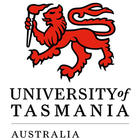Master of Global Logistics and Supply Chain Management
Master of Global Logistics and Supply Chain Management
In the evolving global business economy, businesses enhance and transform their logistics and supply chain systems to gain competitive advantage. With global supply chains evolving and expanding constantly, the understanding of how to develop and implement sustainable, effective, and efficient logistics and supply chain management strategies is key to the…
Categories
COURSE DESCRIPTION
In the evolving global business economy, businesses enhance and transform their logistics and supply chain systems to gain competitive advantage. With global supply chains evolving and expanding constantly, the understanding of how to develop and implement sustainable, effective, and efficient logistics and supply chain management strategies is key to the success of businesses in many industries. The Master of Global Logistics and Supply Chain Management is designed for people who seek professional careers in logistics and supply chain management that are in high demand globally in different industries. The Master of Global Logistics and Supply Chain Management prepares students with the knowledge of theories, concepts, principles and practice in logistics and supply chain management to make informed decisions in a real-world global context. It also develops graduates’ skills such as business analytics and optimisation to develop solutions for a range of complex issues faced by businesses and enhance their logistics and supply chain performance.
The two-year master course is a nested program that includes entry and exist awards for the Graduate Certificate in Global Logistics and Supply Chain Management and the Graduate Diploma of Global Logistics and Supply Chain Management. The pathway courses provide students with the flexibility and choice to match their employment prospects and career/learning progression with personal goals and circumstances.
Course objectives: The Masters of Global Logistics and Supply Chain Management prepares students seeking entry into the industry in management positions, either having completed previous study or work experience in a related field or not.
Through completion of theoretical and practical explorations into key focus areas including business analytics, commercial ship management, International Trade, finance and logistics, the course prepares graduates with high-level expertise in operational management. The dissertation component allows you to put theory into practice with the application of continuity, sustainability and compliance frameworks, among others, into an assessment of a real-world company’s management practices. The development of your strategic communication, academic writing and research ethics competencies are geared for application in maritime industries globally.
Learning Outcomes:
1 Design and implement logistics and supply chain processes to improve business outcomes.
2 Critically evaluate logistics and supply chain solutions to complex problems in a global business environment
3 Conduct a research or industry-based project to advance the knowledge and practices of global logistics and supply chain management.
4 Manage communications across organisational teams, customers and business partners to support business outcomes in local and global contexts.
REQUIREMENTS
An undergraduate degree from an Australian higher education institution or the equivalent standard in any other institutions; or A Graduate Certificate or Graduate Diploma; or A qualification of AQF Level 6 or equivalent and a minimum of three years managerial working experience.
A cognate undergraduate degree would be in the same or related area eg, maritime management, maritime operation, logistics management, supply chain management, and business management; or any Bachelor degree with a major in business, logistics management, and supply chain managementCognate industry experience would be in the fields of maritime, transport, logistics and supply chain.
Most of our postgraduate programs have the following English language requirements.
IELTS (Academic) – 6.0 (no individual band less than 6.0)
TOEFL (iBT) – 72 (no skill below: Reading 16; Listening 16; Speaking 18; Writing 22)
PTE Academic 50 with no score lower than 50.
EDUCATIONAL INSTITUTION
The University of Tasmania was officially founded on 1st January 1890 and is located at Sandy Bay, Tasmania. In addition to the main campus at Sandy Bay, it also operates out of the Newnham Campus and the Cradle Coast Campus. The most popular courses offered are the environmental studies that include wilderness management, marine sciences and indigenous studies in Tasmanian literature. Other unconventional courses include agriculture development, studies on the community and population and ocean study programs. The university also comprises of a Music Conservatorium, Art school and a School of Clinical studies.




